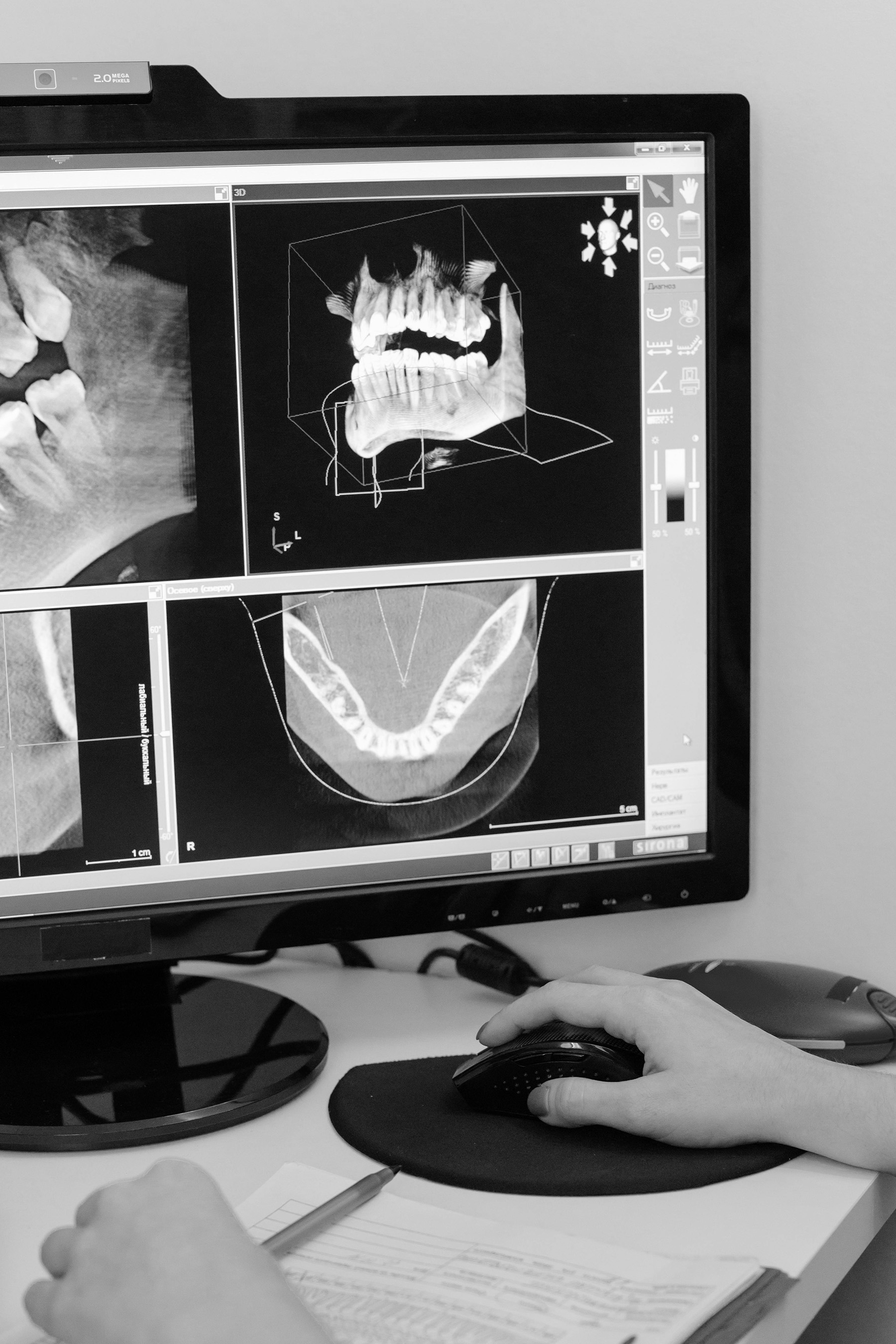
Dealing with TMJ
Temporo-Mandibular Joint Dysfunction Syndrome (TMJ) is a common condition affecting a wide variety of people.
TMJ is characterized by severe headaches, jaw pain of varying degrees, grinding teeth, and an intermittent ringing in the ears. The symptoms of TMJ are debilitating and can greatly interfere with every day life. The vast majority of sufferers are unaware that the root cause of these problems is something that a dentist can effectively treat.
Reasons for treating TMJ
The most common cause of TMJ is the misalignment of the teeth. It is possible for your dentist to realign or adjust the teeth without the need for painful or expensive surgeries. The realignment/adjustment will stop the pounding headaches, the jaw pain, and the dizziness.
TMJ sufferers report that their symptoms generally worsen during periods of prolonged or unexpected stress, and that intense outbreaks of the condition can lead to neck pain and dizziness.
The grinding teeth symptom is particularly common and usually occurs at night. The grinding will eventually erode the structure of the teeth and lead to much more severe dental problems in the future.
What does treating TMJ involve?
TMJ could be a result of several different problems. Bad bite is the most common, but an injury resulting from a blow to the meniscus cartilage is also a possibility. Initially, the dentist will thoroughly examine the jaw area, the patients bite, take x-rays, and review the patient's history in order to make an accurate diagnosis and recommend necessary treatment.
Once a firm diagnosis is attained, there are several ways in which relief can be provided. A specially molded bite guard can be created to stop teeth grinding during the night. A bite relationship analysis may be recommended by the dentist. The dentist can also provide advice on relaxation techniques which will lessen the effects of stress. As a last alternative, the dentist is also able to prescribe muscle relaxants.
A better option is to change the shape of the teeth and get rid of the bad bite completely, often called \"realignment.\" This is especially useful because it alleviates TMJ symptoms and may improve the aesthetic appearance of the teeth as well. Realignment involves adjusting the relationship between how the upper teeth come together with the lower teeth. This may require new restorations and/or adjusting the natural teeth as well. It is not a painful procedure, and it is one dentists have performed with great success numerous times.
Contact
Call (937) 435-5163 or request an appointment online to set up your first visit. We’ll be in touch soon.
